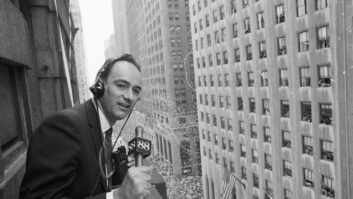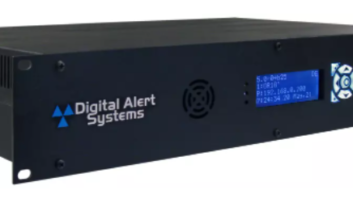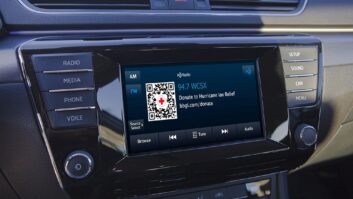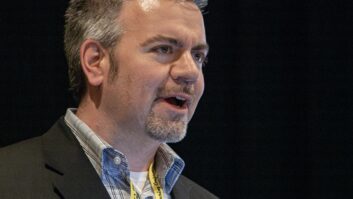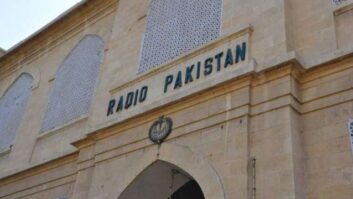WASHINGTON American University’s WAMU(FM) is beta-testing a second digital channel with special authorization from the FCC. It believes it’s the first station to do so, aside from the original four test stations for the Tomorrow Radio project.
The station, which began HD Radio transmission May 7, has divided what would normally be a 96 kilobits-per-second FM digital data stream into 64 kbps for the main digital audio stream and 32 kbps for the supplemental portion of the digital stream.
The supplemental audio channel, which the station is calling “WAMU 2,” includes transmission of a 7-minute demonstration that includes clips of WAMU and NPR programs. The station began transmitting the supplemental stream on May 8.
Program-associated data also is being transmitted using hard-drive systems from D.A.V.I.D. Systems Inc.
WAMU has a Harris digital transmitter and Dexstar exciter; it is using high-level combining with an ERI IBOC combiner.
Harris provided a prototype Flexstar Importer to WAMU for use with its digital transmitter to broadcast supplemental audio. The importer manages the advanced HD Radio applications for datacasting and supplemental audio channels. It mulitplexes the data or supplemental audio in a format that is compatible with the Ibiquity system, preparing it for modulation along with the primary audio, according to Harris.
WAMU’s digital conversion cost around $110,000. It received CPB funding for most of the cost and had a separate grant for the remainder.
WAMU timed its conversion to coincide with the Public Radio Leadership Conference.
RDS Gains Forum
WASHINGTON If commercial radio has rediscovered RDS, and if those owners are using it in the top 50 markets, it would be a glaring omission if public broadcasters there don’t do the same.
That was the message from Jim Paluzzi, new vice president of applied technology for Colorado Public Radio, for attendees of the Public Radio Leadership Conference in May.
Paluzzi and some others in public radio are promoting the concept of Radio Data Services as a way to keep up with radio technology in the interim before converting to digital. Some public radio regional groups are large, and their executives say they can’t afford to convert all their stations to digital at the same time.
“We need to use this. In the top 50 markets, Clear Channel is putting up song title and artist on its stations,” Paluzzi said.
Attendees saw examples of program-associated data included with the digital signal from Washington FM noncoms WETA and WAMU. PAD is part of the IBOC data stream should stations wish to use it.
Then attendees saw demos of RDS including PS scrolling data – song title and artist names and a telephone number to call during fundraisers. NPR Senior Engineer Jan Andrews and Senior Technologist John Kean participated in the demo.
Steve Johnson, newly promoted to general manager of Boise State Radio, manned the transmit portion. He used a laptop as the source of audio and data.
The audio went to a low-power 100-milliwatt transmitter, while data was fed into an Inovonics 712 RDS encoder. The low-power subcarrier signal on 90.7 MHz was received using an RDS table radio from Cambridge SoundWorks 730, which retails for about $199. Johnson estimated the cost of doing basic RDS at roughly $800, including installation of an RDS encoder at a transmitter site.
CPB Funds AM IBOC Technical Evaluations
Noncommercial station owners can take advantage of a Corporation for Public Broadcasting-funded technical ascertainment for CPB-qualified licensees.
For those who sign up, CPB will pay for an engineer to determine if a station is IBOC-ready, checking transmission power levels, ground radials and other factors. The program is to begin in June. Those interested should contact Doug Vernier, a CPB digital radio consultant, at [email protected].






